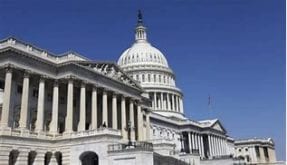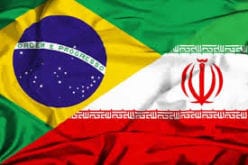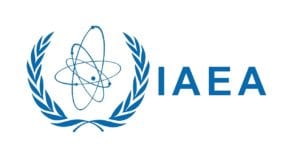iranintl – Conflicting accounts have emerged regarding the status of a new comprehensive cooperation agreement between Iran and Russia.
According to a Tuesday report from the Russian state outlet RIA, the agreement has temporarily halted due to challenges faced by Iranian counterparts.
Zamir Kabulov, a Russian foreign ministry official, was cited as stating, “This is a strategic decision made by the leadership of both countries. The process has halted due to issues faced by our Iranian partners.”
The Russian official nevertheless expressed confidence that “this task will be completed before finalizing the agreement’s text,” after which “the two countries’ leaders will determine the signing’s time and location.”
Later, Iran’s ambassador to Russia denied the report. When asked about the news at a press conference on Tuesday, Kazem Jalali accused the Iranian media of “mistranslating” Russian media reports that Iran had suspended the process. He refrained from delving into specifics.
Later on Tuesday, Kremlin spokesman Dmitry Peskov noted that despite potential shifts in the event schedule, Moscow and Tehran are actively pursuing the comprehensive bilateral cooperation agreement. Peskov also reiterated Russia’s commitment to enhancing ties with Iran.
Adding to the multitude of narratives, Russian Foreign Minister Sergey Lavrov stated that, while a comprehensive agreement between Russia and Iran cannot yet be signed, its text has been fully coordinated.
Russia’s TASS news agency quoted Lavrov as saying that several “procedural legislative actions” must be completed before the agreement can be signed.
Iran’s previous administration commenced talks for a new long-term agreement during President Hassan Rouhani’s tenure, but the current government officially presented a draft to Russia.
“Documents of strategic cooperation can outline the horizons of the [two countries’] relations over 20 years,” late President Ebrahim Raisi said after he met with Vladimir Putin and presented the draft in 2022.
According to Reza Talebi, Iran International’s political correspondent, the long-running process might be a strategic move by Vladimir Putin to exert more pressure on an isolated Iran, gaining leverage in the agreement and discouraging Iran from negotiating with the West.
“It’s a message from Vladimir Putin to Tehran, warning them not to alter their policies, particularly concerning Ukraine and the Gaza conflict. Additionally, it aims to pressure the incoming Iranian government into negotiations to secure more favorable terms,” he stated.
Following the death of Ebrahim Raisi and his entourage last month, a snap election will be held on June 28 in Iran.
Tehran and Moscow initially signed a long-term agreement in March 2001. Officially known as the Treaty of the Foundation of Mutual Relations and the Principles of Cooperation between the Islamic Republic of Iran and the Russian Federation Act, it was initially set for ten years but was extended twice for five-year terms.
According to Iran’s ambassador to Russia, the countries agreed to extend the agreement for another five years in 2021, setting its expiration date in 2026.
In 2023, reports of possible difficulties in developing the new agreement with Russia, resulting from protests from Iran in response to the joint statement issued following the Russia-GCC Strategic Dialogue, were made.
In particular, the disagreement concerns one point in the joint statement, which Iranian officials believe reflects Moscow’s solidarity with the UAE’s position on the territorial dispute regarding three islands in the Persian Gulf that Tehran considers to be its territory. Moscow’s explanations were unsatisfactory to the Iranian side.
During the tenure of hardliner Raisi, efforts to strengthen relations with Russia intensified, and many contracts were signed to enhance bilateral cooperation across various industries. However little was accomplished, as Russia mired in the Ukraine war has limited financial resources to invest in Iran.
In contrast, militarily ties have soared, including joint drills and drone production. Iran has provided Russia with hundreds of kamikaze unmanned aerial vehicles (UAVs) that have been extensively deployed to target civil infrastructure and cities in Ukraine since mid-2022.
Also, US intelligence revealed last year that Tehran and Moscow were building a drone manufacturing facility in Russia for use in Ukraine.
Under severe international sanctions, Moscow and Tehran have forged a closer economic alliance, especially following Russia’s invasion of Ukraine in February 2022. This conflict rendered Russia the world’s most sanctioned state, a position previously held by Iran.
Currently, trade between Tehran and Moscow stands at $4 billion, which even Iranian officials admit is far below the target of $40 billion.
Since the onset of the Ukraine war, Russia and Iran have focused their economic ties on advancing cooperation to circumvent sanctions. The two countries reached an agreement in December to eliminate the use of the US dollar in bilateral trade, a development heralded by Iran’s central bank governor as a “new chapter.” However, the move has more of a symbolic significance than a real economic act.
Amid sanctions, Iran seeks long-term agreements with countries such as China and Russia under Supreme Leader Ali Khamenei’s “Looking East” policy, the cornerstone of a “revolutionary economy” hardliners have been promoting.
In 2021, Iran and China signed a controversial 25-year agreement. Khamenei, first proposed the deal during President Xi’s visit to Tehran in 2016.
The details of the pact have never been disclosed, prompting controversy in Iran. There is only a general agreement outlined in a leaked text copy.
According to a former Iranian ambassador to China, the Tehran-Beijing 25-year agreement has been overvalued and has only served as a tool for China to achieve deals with Saudi Arabia.
Despite Iran’s attempts at securing bilateral relations with China and Russia, relations remain on edge as both countries support the territorial claim by Arab Persian Gulf countries against Iran.
 Shabtabnews In this dark night, I have lost my way – Arise from a corner, oh you the star of guidance.
Shabtabnews In this dark night, I have lost my way – Arise from a corner, oh you the star of guidance.



